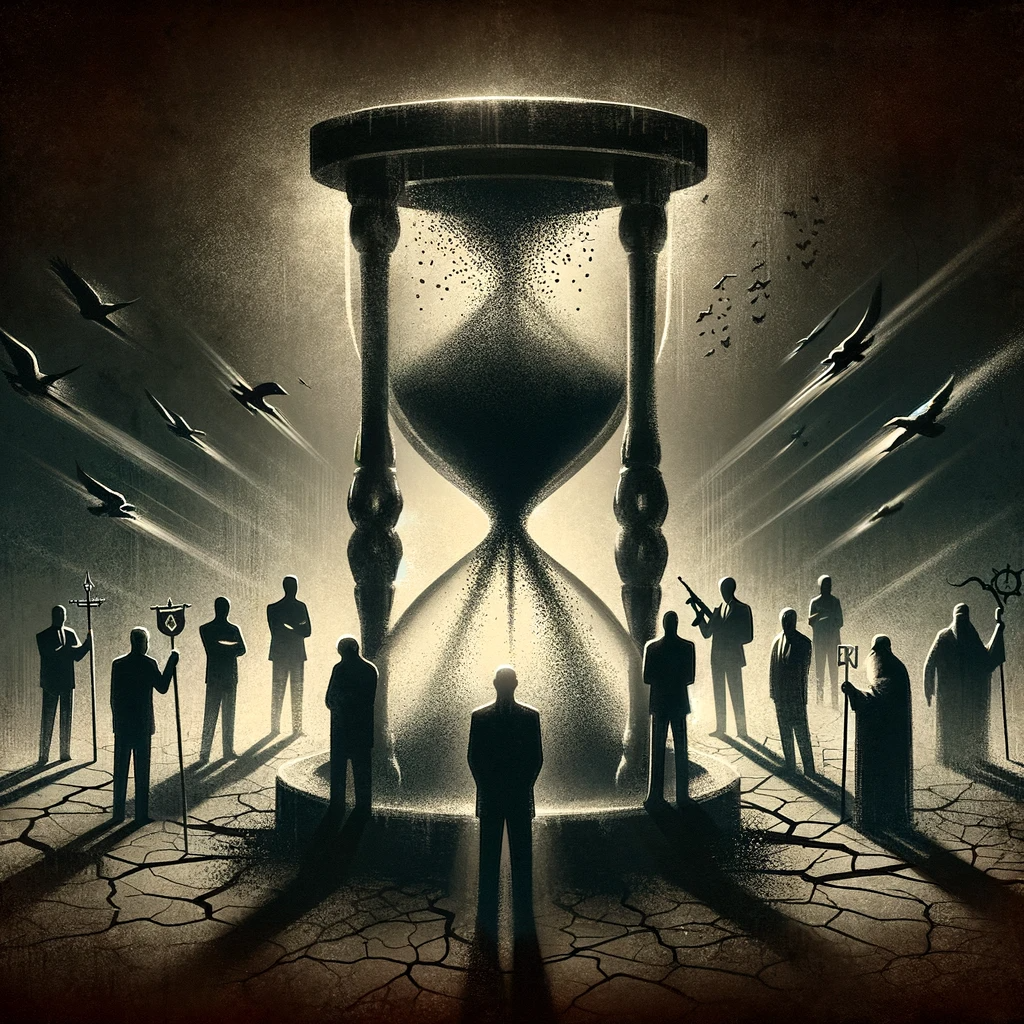The Top 10 Assassinations That Changed the Course of History
In the annals of history, there are moments that unequivocally change the trajectory of human civilization. Assassinations of influential leaders stand out as such critical junctures. These leaders' untimely deaths have not only left a void but also sparked controversies, conspiracies, and massive shifts in social and political landscapes. This article delves into the top ten assassinations that left an indelible mark on history, igniting a whirlwind of change and leaving the world to grapple with their legacies.
10. The Sudden Demise of Philip II of Macedon – A Kingdom's Unexpected Turn
In the autumn of 336 BC, the abrupt assassination of Philip II of Macedon, the mastermind behind the strategy of divide and conquer, stunned the ancient world. His murder at his daughter's wedding, at the hands of Pausanias of Orestis, a bodyguard, left more questions than answers. While the true motivations behind the assassination are shrouded in mystery, it paved the way for his son, Alexander the Great, to forge one of history's most extensive empires.
9. The Voice Silenced: Malcolm X's Tragic End
Malcolm X's assassination on February 21, 1965, was a shattering blow to the civil rights movement. A figure of courage and controversy, Malcolm X's departure from the Nation of Islam and his unyielding quest for freedom made him a target. In a hail of gunfire, his voice, which had articulated the struggle for African American rights so fervently, was forever silenced, leaving behind a legacy of activism and a movement bereft of one of its boldest leaders.
8. Benazir Bhutto: A Trailblazing Leader's Assassination and Its Chaotic Aftermath
Benazir Bhutto, the first woman to head a Muslim nation, met her untimely death amidst political tumult in Pakistan on December 27, 2007. This tragic event unfolded when Bhutto was assassinated during a political rally, leading to a cascade of riots and unrest. Her death not only quenched the flames of potential stability in Pakistan but also became a symbol of the fragility of political leadership in the face of extremism.
7. The Catalyst for Catastrophe: Archduke Franz Ferdinand's Assassination
Often considered the spark that ignited World War I, the assassination of Archduke Franz Ferdinand of Austria on June 28, 1914, by Gavrilo Princip—a nationalist seeking independence from Austria-Hungary—plunged the world into a conflict of unprecedented scale. The Archduke's death was the match that lit the powder keg of geopolitical tensions, leading to a war that redefined global alliances and warfare.
6. John Lennon: The Dreamer's Final Curtain Call
The murder of John Lennon on December 8, 1980, by Mark David Chapman marked the end of an era of cultural revolution. Chapman, embittered by Lennon's earlier remarks about the Beatles' popularity and influenced by the protagonist of "The Catcher in the Rye," sought to kill the man he saw as a hypocrite. Lennon's death resonated around the world, silencing one of the most beloved voices of peace and artistic expression.
5. Martin Luther King Jr.: A Dream Deferred by an Assassin's Bullet
The assassination of Martin Luther King Jr. on April 4, 1968, was a seismic event in the American civil rights movement. His message of nonviolence and equality was brought to a tragic halt by James Earl Ray, a stark contradiction to everything King stood for. His death widened societal rifts and amplified the urgency for racial equality in America, igniting a more radical phase in the struggle for civil rights.
4. The Enigma of John F. Kennedy's Assassination
President John F. Kennedy's assassination on November 22, 1963, is enveloped in a tapestry of mystery and conspiracy theories. The official narrative points to Lee Harvey Oswald as the gunman, but Oswald's subsequent murder by Jack Ruby left the public with more questions than answers. JFK's untimely death sent shockwaves through the nation, marking one of the most infamous moments in American history.
3. Abraham Lincoln: The Unfulfilled Potential of a Nation's Healer
After leading a fractured nation through the Civil War, Abraham Lincoln's assassination on April 14, 1865, by Confederate sympathizer John Wilkes Booth, was a national tragedy. Lincoln's vision for a unified America and the potential for post-war reconstruction died with him, creating a legacy of what might have been for a country on the brink of rebirth.
2. Julius Caesar: The Ides of March and the Birth of an Empire
The assassination of Julius Caesar on March 15, 44 BC, epitomized the ultimate betrayal. His murder by Roman senators, including his friend Brutus, signified the death of the Roman Republic and the rise of an empire. The political aftermath of Caesar's demise unfolded into a series of civil wars, ultimately leading to the ascension of his heir, Augustus, and the beginning of the Roman Empire.
1. The Prophet of Peace: Mahatma Gandhi's Assassination and the Quest for Harmony
Mahatma Gandhi's assassination on January 30, 1948, by Nathuram Godse, a Hindu nationalist, marked the loss of a universal symbol of non-violent resistance. Gandhi's approach to securing India's independence through peaceful means was revolutionary. His death, however, highlighted the deep-seated religious tensions within India, a poignant reminder of the challenges that lay ahead for a nation seeking unity.
Each of these assassinations served as a fulcrum point, an instance where the fate of nations and ideas hinged on a single, violent act. They remind us that the course of history can be altered not just by the actions of the living, but also by the impact of the lives they prematurely end.
Follow us on X (formerly Twitter) for exclusive content, gift card giveaways, and interactive polls that shape our next articles.













